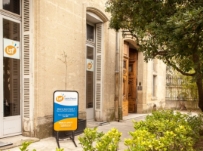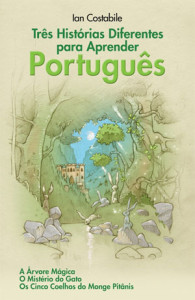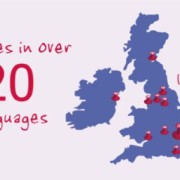If you are considering doing an evening language course, first hand feedback and course reviews are a great way to find out what it’s really like. Below are course reviews from our April 2015 intake of evening language courses across the UK.
Chinese (Mandarin) Beginner 1, London Bond Street
“Amazing teacher. Great way to build up language skills. A lot of practice and repetitions for everyone. Really enjoyed it!” Camille
French Beginner 1, London Bond Street
“Tabara is very patient and an excellent teacher. I hope to have her for our next course. Teachers can only do so much in 2 hours – students need to do a little extra between classes to stay up to date. Tabara ensured we had homework but never piled it on us. Loved her classes.” Marcelle
German Beginner 1, London Holborn-Russell Square
“Peggy was fantastic. I found her very easy to talk to and very helpful. She is a great teacher. We had various exercises each lesson and I have learnt a lot from grammar and vocabulary, with lots of reading and writing too. I think I’m well prepared for the next level and I hope it will be with Peggy again.” Joanna
Turkish Beginner 1, London Holborn-Russell Square
“A great introductory course. Harika was a great teacher; it was obvious she cared about the students’ learning and she made sure the lessons were engaging and well planned. The course was exactly what I was looking for and the teacher made sure we all understood. I feel I made good progress – more than I expected.” Ambreen
French Beginner 1, Liverpool
“My Tutor was very good and I’ve made lots of improvement. Now I can go to Paris on my own and be able to communicate.” Bibi
Spanish Beginner 2, Liverpool
“Immersive learning is intensive and a bit like being thrown in at the deep end, but it is very effective! We covered a variety of topics as well as going in depth on grammar use, pronunciation, etc. We had more written and listening work than the Beginner 1 course, which was very helpful.
The teaching was excellent – our teacher was patient, encouraging, explained everything clearly, incorporated individual needs and made classes fun.
We had everything we needed and were provided with any additional materials we asked for.
I couldn’t believe how much I learned in the Beginner 1 course, and the Beginner 2 course has built on that much more than I expected. I feel that I have learned a great deal in a short time and am much more confident in my abilities.” Shelley
Italian Beginner 2, Manchester
“The course is very good, the atmosphere and people are great and Fabiola is an outstandingly good teacher.” Marta
Japanese Beginner, Manchester
“The course was well planned out with a good amount of work set each week. Nicholas is a very good teacher with a good teaching style. He definitely knows his stuff and makes lessons enjoyable. I feel that thanks to the course I now have a solid starting point for continuing to learn Japanese.” Ben
Portuguese Beginner 1, Manchester
“Very effective and enthusiastic teaching. Sara always related our classes to everyday situations and aspects of Portuguese culture where relevant, which made the course interesting and fun.” Paul
Many thanks to all our students who take the time to submit course feedback, as it is important in helping us to monitor and maintain the quality of our courses.
Cactus runs 10-week evening language courses in locations across London and in other major cities across the UK: Manchester, Brighton, Bristol, Oxford, Leeds, Liverpool and Sheffield. Our next courses start in October 2015, with our best ever offering of over 20 languages in 19 locations.
Why not join us for a free taster class and chat to us about your language learning plans?
For more course feedback on evening courses, language courses abroad and corporate language training, please visit our blog. Feel free to get in contact with us by Facebook or by Twitter or contact us here.




 Yes, I would recommend the course as it offers a young adult both a personal and socio-linguistic learning curve within a regulated environment. Caspar was not the youngest student last year: there were 12 year olds at Montepellier, some more confident than others. It’s all a question of maturity. Any 12 year old will be amongst 14 / 15 year olds and there is, as you know, a huge difference in slight age differences during the teenage years. To be honest, I was more nervous of letting him go last year, than he was of going – both vigilance and homesickness were issues. The same is true this year; he is only just 14. There are always risks. But, these, we felt, were minimised last year as we always had the assurance that a family friend lived in Beziers (a short drive away). I also had some email correspondence with Mme Meson prior to his visit and she seems a good sort (which through experience, was proved and she was a delight to meet).
Yes, I would recommend the course as it offers a young adult both a personal and socio-linguistic learning curve within a regulated environment. Caspar was not the youngest student last year: there were 12 year olds at Montepellier, some more confident than others. It’s all a question of maturity. Any 12 year old will be amongst 14 / 15 year olds and there is, as you know, a huge difference in slight age differences during the teenage years. To be honest, I was more nervous of letting him go last year, than he was of going – both vigilance and homesickness were issues. The same is true this year; he is only just 14. There are always risks. But, these, we felt, were minimised last year as we always had the assurance that a family friend lived in Beziers (a short drive away). I also had some email correspondence with Mme Meson prior to his visit and she seems a good sort (which through experience, was proved and she was a delight to meet).









